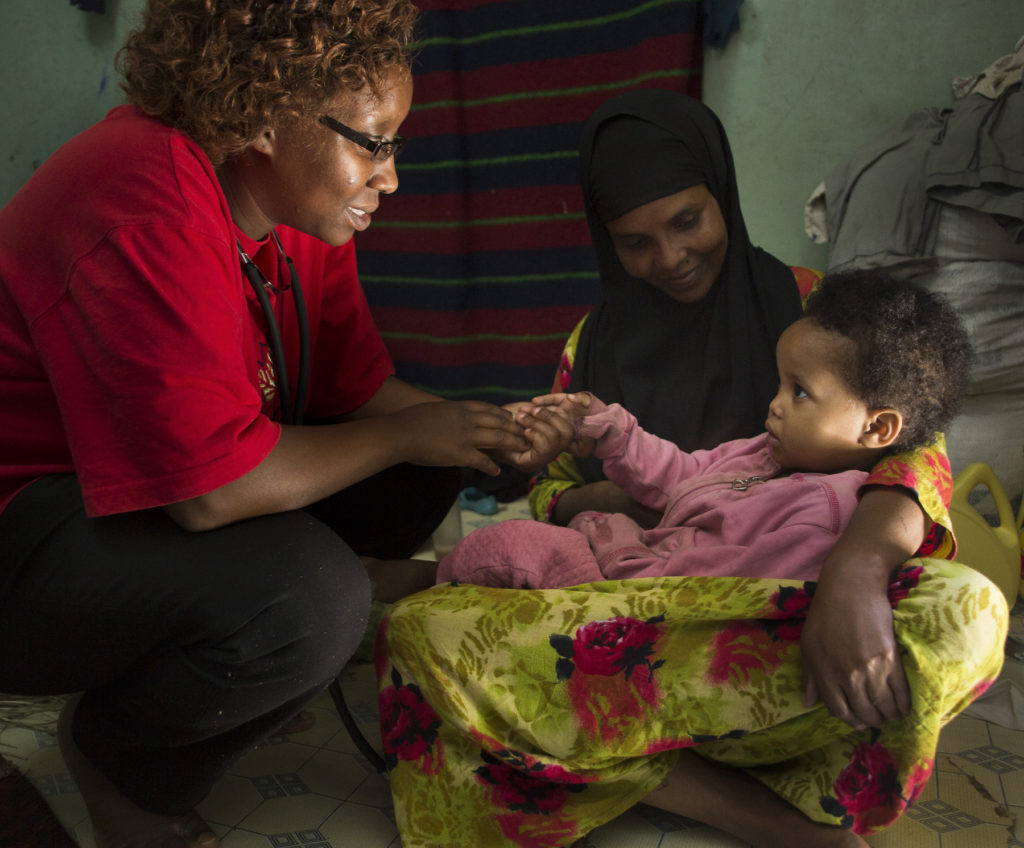RefugePoint implements a robust community health program that reaches approximately ten thousand refugees annually with critical information of public health importance. RefugePoint also partners with local government health departments in support of immunization and other public health campaigns. When refugees are struggling with mental and physical health issues, they cannot work and support themselves and their families. Lack of income due to poor health impedes self-reliance, and this situation often creates further emotional distress for the individual.
When refugees flee from their country of origin to seek asylum, they often experience culture and system shock. On arrival in countries of asylum, they must adapt to new cultures and learn new systems, despite language barriers and bureaucratic complexities. Unfortunately, for many refugees, COVID-19 has made this process even more difficult.
COVID-19 related lockdowns severely limited access to health services and caused rolling drug shortages. Many people also refused to visit health facilities for fear of contracting the virus. Making the situation even worse, misinformation and misconceptions about COVID-19 circulated across communities fuelling unfounded worries.
RefugePoint addressed these challenges during the pandemic, by sending frequent informational text messages to over 5,000 refugees in multiple languages. The messages included critical public health information about coronavirus symptoms, hotlines to call for information, health and safety measures, government regulations, mental health support, and messages of hope – reassuring clients during this difficult time. In addition, during the early months of the pandemic, RefugePoint offered health education to refugee communities in Nairobi on proper sanitation and best practices to minimize the spread of infection.

Photo: Amy Toensing
RefugePoint staff made telemedical calls to refugees to encourage them to visit health facilities when they fell sick and to get vaccinated as soon as possible. RefugePoint also provided information to patients and families with loved ones who suffer from chronic illnesses such as diabetes, hypertension, and convulsive disorders, amongst other diseases. We created WhatsApp groups that served as a convergence space for the health team. We also offered health consultations and feedback via telephone to reduce in-person contact. Our counseling team provided individual support to clients through tele-counseling, therapy group sessions via teleconferencing, and support group sessions via Zoom.
RefugePoint’s Community Navigators helped to refill patients’ drug prescriptions. Our staff received valid prescriptions, transcribed them, and then delivered the essential medications to their clients. Our health team also offered virtual training on the management of chronic diseases and identified vulnerable families to enroll them in the National Health Insurance Fund (NHIF).
RefugePoint’s health services aim to reduce the spread of COVID-19 through community health interventions and concerted efforts within communities and households.